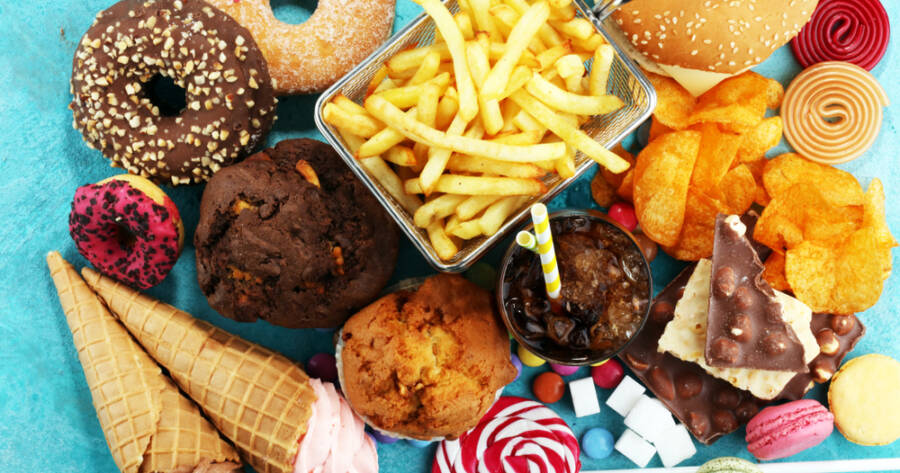Fatty liver disease is a condition where excess fat builds up in the liver. This can lead to inflammation, scarring, and other complications if not addressed. Thankfully, a well-balanced diet can play a crucial role in managing and even reversing this condition. By avoiding certain foods, you can help reduce fat accumulation in your liver, prevent further damage, and promote overall liver health. Explore the foods that should be limited or avoided if you have fatty liver disease.
Fried Foods
Fried foods, such as french fries, fried chicken, and doughnuts, are high in unhealthy fats that can contribute to fat buildup in the liver. These foods are typically loaded with trans fats and saturated fats, which not only increase liver fat but also promote inflammation.
Consuming fried foods regularly can worsen the progression of fatty liver disease and lead to further liver damage. To protect your liver, it’s best to avoid fried foods and opt for healthier cooking methods like grilling, baking, or steaming.
Added Sugar
Added sugar is a major contributor to fatty liver disease. Consuming foods and drinks high in sugar, such as sugary sodas, candies, and baked goods, can cause the liver to store excess fat. High sugar intake leads to insulin resistance, which in turn triggers fat buildup in the liver.
It’s important to read food labels carefully and limit the consumption of added sugars to manage fatty liver disease effectively. Instead, opt for natural sweeteners like honey or fresh fruit to satisfy your sweet cravings.
Too Much Salt
Excessive salt intake can worsen liver health, especially in individuals with fatty liver disease. High-sodium foods, such as processed snacks, canned soups, and fast food, can lead to fluid retention, high blood pressure, and liver inflammation.
Over time, this may contribute to further liver damage and even cirrhosis. Reducing sodium intake is essential for supporting liver function. Choose fresh, whole foods, and use herbs and spices for flavoring instead of salt to keep your liver healthy.
Red Meat
Red meat, such as beef, pork, and lamb, is high in saturated fats, which can contribute to fat accumulation in the liver. Consuming large quantities of red meat has been linked to increased liver fat and inflammation, especially in those with fatty liver disease.
To protect your liver, it’s important to limit red meat intake and consider healthier protein sources like fish, chicken, and plant-based options. Lean cuts of meat, when consumed in moderation, can help reduce the strain on your liver.
Alcohol
Alcohol is one of the most significant factors that contribute to fatty liver disease and other liver conditions. Drinking alcohol increases the amount of fat in the liver, causing inflammation and potentially leading to more severe liver damage over time.
If you have fatty liver disease, it’s crucial to avoid alcohol completely to prevent further damage. Even moderate alcohol consumption can exacerbate liver problems, so it’s best to eliminate it from your diet to support liver health and prevent disease progression.
Foods to Eat for a Healthy Liver
To promote liver health and manage fatty liver disease, a well-balanced diet is key. Focus on incorporating liver-friendly foods into your diet. Opt for whole grains, leafy greens, and fruits like berries, apples, and citrus, which are rich in antioxidants that help reduce inflammation.
Healthy fats, such as those found in avocados, nuts, and olive oil, can help improve liver function. Additionally, foods like garlic, turmeric, and green tea have been shown to support liver detoxification. A balanced, nutrient-dense diet will help reduce fat buildup in the liver and improve overall health.
Nourish Your Liver for a Healthier Future
Avoiding foods that can exacerbate fatty liver disease is crucial to managing the condition and promoting liver health. By cutting back on fried foods, added sugars, excessive salt, red meat, and alcohol, and focusing on a diet rich in whole, nutrient-dense foods, you can support your liver’s natural detoxification process and reduce fat accumulation.
By making these dietary changes, you not only protect your liver but also improve your overall health. Prioritize liver-friendly foods, and take proactive steps toward a healthier, more vibrant future.





